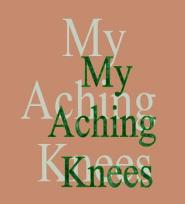Not long ago, my husband and three of our kids went charging up Mount Katahdin--think of it as New England's mini Mount Everest. I'd spent months hiking with friends to make sure I was in shape and, at the start, hustled to keep pace with our teenagers as we hauled ourselves up the steep boulders. But within a couple of hours I was straggling; they leapt past me like giddy mountain goats while I carefully picked my way up the rocks.
Was I disappointed? Actually, no. I felt smart. My 40-something body was telling me how to protect it from injury--and my hips and feet thanked me later. It turns out that our bodies routinely transmit this evolving wisdom, gently steering us away from activities or indulgences we can no longer tolerate to ones that will ensure continued good health.
Here are six other things your body's trying to tell you.
1. When you're dehydrated
Over the course of a lifetime, our kidneys, which transport water to our tissues, gradually lose a bit of their efficiency. Also, nerves that signal thirst gradually decline. The combination means that you may be unaware of the fact that you're not getting adequate hydration.
Listen to your body: Sip throughout the day. While there's no reason to torture yourself with eight 8-ounce glasses if you don't like it, make a habit of consuming enough fluids every day. Not an H2O fan? Try adding herbal tea at each meal.
MyAchingKnees comment: A pitcher of water with slices of lemon's, limes or any type of berry is another way to spice up your plain water.
2. When to go easy on dessert
From early adulthood to late middle age, our metabolic rates fall by an average of 10%. "That's because people tend to become more sedentary as they age," says Barbara Bushman, PhD, a professor of exercise physiology at Missouri State University, "and that inactivity reduces muscle mass, in turn lowering metabolism. The metabolic drop is also due to a decline in cellular activity, so even women who maintain a consistent level of fitness find that they need fewer calories to maintain the same weight."
Listen to your body: Think of the metabolic slowdown as your body's way of getting you to be more mindful of what's on your fork or spoon. Instead of an ice cream sundae, think: healthier fruit parfait.
3. When to hit the hay
"My body can no longer handle being awake until 2 am and then getting up at 6," says Riconda Solis Lamb, 44, a mom of two teens who has long relied on the midnight hours to catch up on everything from reading to cleaning to exercise. "Now if I'm up late, it's like I have narcolepsy at the office the next day." The National Sleep Foundation says that's because the architecture of sleep changes as we age; we spend more time in light stages of sleep and less in those that are deeper and more restful. Combine this with the fact that most of us don't get the recommended 7 to 9 hours of sleep each night, and a late night really hurts.
Listen to your body: Get more sleep than you think you need-always at least 7 hours. Switch off phones, computers, and the television an hour earlier.
4. When you need to stretch
Even as our body wisdom increases, our flexibility declines. Lamb, who lives in Rogers City, MI, says she's made peace with feeling like Oz's Tin Man after a rainstorm. "I used to jump out of the car after a 2-hour drive and feel fine," she says. Now it takes a little effort to unfold her legs. By our mid-40s, most of us have lost between 3 and 4 inches in the sit-and-reach test. "The elasticity of tendons, ligaments, and joints decreases," increasing the potential for injuries, says Bushman. New evidence also links poorer flexibility to heart disease: Japanese researchers found that middle-aged and older people who do poorly on the sit-and-reach test have stiffer arteries than more flexible people.
Listen to your body: Do more activities like yoga and tai chi, which boost both flexibility and balance. And after any workout, take time to stretch, holding each pose for 15 to 20 seconds while breathing deeply.
5. When to drop a grudge
Psychologists have known for some time that people tend to become more forgiving the older they get. Researchers at the City University of Hong Kong have a new explanation for this phenomenon: Our sense of the future becomes more constrained and regulating our emotions becomes more important, so we are motivated to kiss and make up.
Listen to your body: Cultivate a kinder heart. A recent study from the University of Wisconsin-Madison shows that cardiac patients who undergo forgiveness counseling--they learn to work though and overcome hostile feelings, and thus grudges, they hold toward others--have significantly fewer heart symptoms, such as angina, than those who don't get the counseling.
6. When to skip that extra glass of wine
A moderate amount of booze eases stress and anxiety and may protect against heart disease, type 2 diabetes, dementia, and stroke. Alas, aging seems to reduce women's ability to tolerate alcohol. Why? The body retains less water, so alcohol becomes more concentrated, and therefore more potent. Drinking even a little more than usual increases the risk of tipsy mishaps, including falls.
Listen to your body: A little vino now and then is a good idea, but stick to no more than one glass at a time, and don't exceed seven servings per week.




.jpg)
